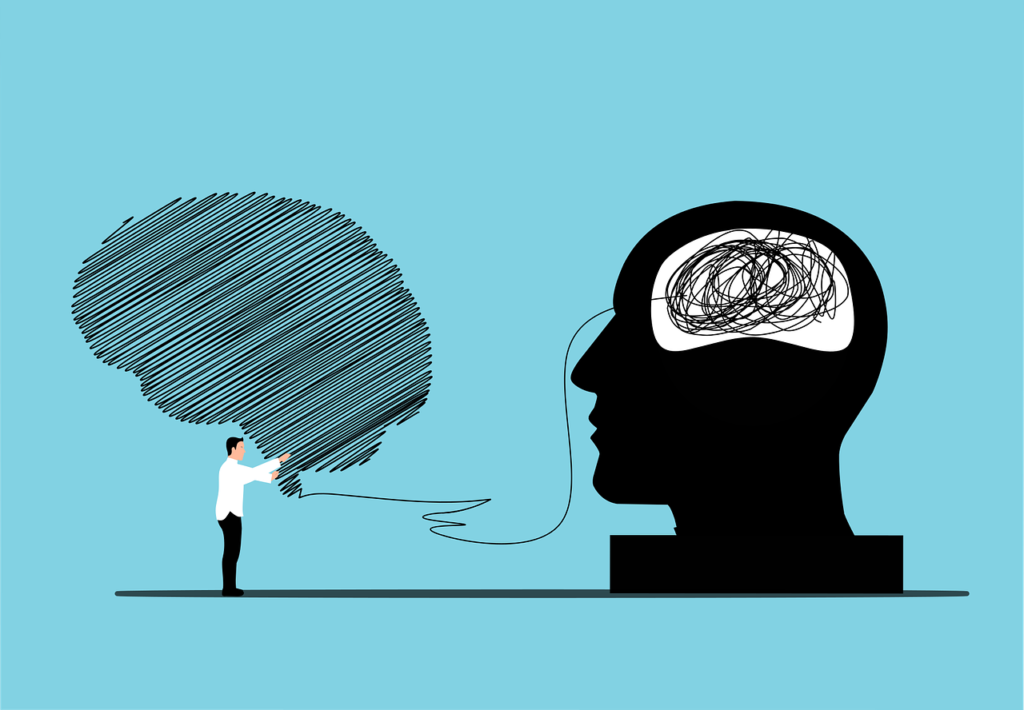Your thoughts have a direct impact on your health, influencing your body’s chemistry, immune function, and overall well-being. Scientific studies in psychoneuroimmunology reveal how emotions shape biological responses, proving that the mind and body are deeply connected.
Here, we’ll explore how negative and positive thoughts affect your body, and provide practical strategies to harness the power of your mind for better health.
The Science Behind the Mind-Body Connection
Research in psychoneuroimmunology (PNI) shows that the brain and immune system communicate constantly. Negative emotions like stress, fear, and anxiety trigger the release of cortisol and adrenaline, leading to inflammation and weakened immunity. On the other hand, positive emotions promote the release of serotonin and oxytocin, enhancing overall health.
Key Scientific Findings
- Stress and Inflammation: Chronic stress increases inflammation, contributing to conditions like heart disease, diabetes, autoimmune disorders and others.
- Placebo Effect: Studies show that believing in a treatment—even if it’s a placebo—can lead to real physical improvements.
- Neuroplasticity: The brain has the ability to rewire itself based on repeated thoughts and behaviors, affecting physical health.

How Negative Thoughts Affect Your Body
When you experience stress, fear, anxiety, or self-doubt, your brain activates the fight-or-flight response, releasing chemicals that prepare your body for danger. While this response is useful in real emergencies, chronic exposure to stress hormones can have serious health consequences.
Effects of Negative Thoughts on the Body
- Increased Cortisol Levels: Prolonged stress leads to inflammation, weakens the immune system, and accelerates aging.
- Impaired Digestion: Stress diverts energy away from digestion, leading to bloating, acid reflux, and gut imbalances.
- Muscle Tension & Chronic Pain: Worry and emotional distress create tension in the neck, shoulders, and back, contributing to migraines and fibromyalgia.
- Weakened Immune System: Negative emotions lower the production of white blood cells, making you more vulnerable to infections.
- Increased Risk of Heart Disease: Chronic stress and anger raise blood pressure and contribute to heart disease.
- Hormonal Imbalances: Anxiety and depression disrupt serotonin, dopamine, and other neurotransmitters, affecting mood and sleep.
🔹 Example: A person struggling with self-doubt and chronic stress may develop digestive issues due to the suppression of the parasympathetic nervous system, which is responsible for rest and digestion.
The Healing Power of Positive Thoughts
Just as negative thoughts can damage the body, positive emotions have the power to promote healing. The brain produces endorphins, oxytocin, serotonin, and dopamine—known as the “happiness chemicals”—which create a ripple effect of well-being throughout the body.
How Positive Thoughts Improve Health
- Boosted Immune System: Optimism and gratitude increase the production of immune cells and antibodies.
- Lower Inflammation & Faster Healing: Positive emotions reduce inflammatory markers and promote cellular repair.
- Heart Health: Love and compassion lower blood pressure and reduce the risk of cardiovascular disease.
- Improved Digestion & Gut Health: A relaxed mind enhances gut microbiome diversity and nutrient absorption.
- Better Pain Management: Meditation and positive thinking trigger the release of endorphins, acting as natural painkillers.
- Longevity: Studies show that people with a positive outlook live longer and experience lower rates of cognitive decline.
🔹 Example: Research on the placebo effect proves that beliefs and expectations alone can trigger physiological healing, demonstrating the power of the mind over the body.

Practical Tips to Strengthen the Mind-Body Connection
Harnessing the power of your thoughts requires conscious effort and daily habits. Here’s how to shift your mindset and improve your health:
1. Reprogram Negative Thought Patterns
- Self-awareness: Identify negative thoughts and replace them with empowering affirmations.
- Cognitive Reframing: When a negative thought arises, ask yourself: Is this really true? Can I see this situation differently?
- Gratitude Practice: Keep a gratitude journal to shift focus from stress to abundance.
2. Reduce Stress Through Mindfulness
- Breathing Exercises: Slow, deep breathing activates the parasympathetic nervous system, reducing stress.
- Meditation: Lowers cortisol, enhances emotional resilience, and rewires the brain for positivity.
- Nature Connection: Spending time outdoors lowers stress hormones and promotes relaxation.
3. Engage in Mind-Body Healing Practices
- Yoga & Tai Chi: Improve flexibility, reduce stress, and harmonize energy flow in the body.
- Energy Healing: Practices like Reiki and acupuncture help balance the nervous system.
- Visualization Techniques: Picture your body healing and thriving to activate the placebo effect consciously.
4. Optimize Your Physical Health
- Nourish Your Body: Eat whole, anti-inflammatory foods that support brain and gut health.
- Exercise Regularly: Movement boosts mood-enhancing neurotransmitters and promotes overall well-being.
- Prioritize Sleep: Quality sleep is essential for emotional regulation and immune function.
Conclusion
Your thoughts shape your reality—not just mentally, but biologically. By adopting a positive mindset and mindful habits, you can strengthen the mind-body connection and create lasting health improvements.
Start today by choosing empowering thoughts, practicing gratitude, and listening to your body’s messages. Your mind has the power to heal.
